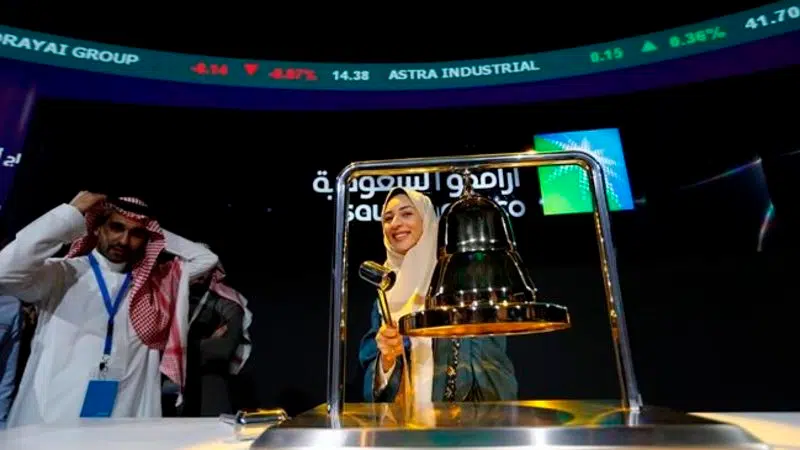
Saudi stock offering creates world’s most valuable company
RIYADH, Saudi Arabia — Saudi Arabian oil company Aramco surpassed Apple as the world’s most valuable public company Wednesday when its shares made their debut on the Saudi stock exchange, part of an ambitious shift away from the very fossil fuels the country’s economy depends on.
The shares’ 10% rally brought state-owned Aramco’s value to $1.88 trillion. The 1.5% of the company that is listed has raised $25.6 billion, a record for an initial public offering. As of Tuesday’s close in the U.S., Apple was valued at $1.19 trillion.
Despite the success of the sale, the kingdom’s decision not to list the company on a larger foreign exchange points to concerns that a global flotation would raise. Listing shares outside Saudi Arabia would open up the company to greater disclosure rules and expose it to foreign laws at a time when the country is under scrutiny for its role in regional conflicts as well as for the killing of a dissident journalist.
“A local Saudi offering is, by all accounts, a friendly audience of Saudi investors,” said Gianna Bern, the author of “Investing in Energy” and lecturer at the University of Notre Dame. She said the real test for Aramco will be a global offering, in another jurisdiction, such as London or Asia. Aramco, however, has said it will not sell more shares for at least another year.
